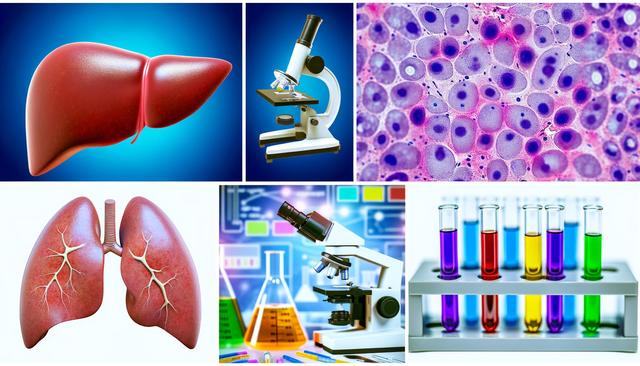Early Detection: 5 Important Tests to Recognise Liver Disease
Understanding Liver Function Tests
When it comes to maintaining overall health, understanding liver function tests (LFTs) is crucial. These tests are designed to assess the state of your liver’s health and diagnose any issues early on. The liver is a vital organ responsible for numerous important processes, including detoxification, metabolism, and digestion. Given its critical role, monitoring liver health through regular check-ups and tests can help catch early signs of liver disease, leading to timely intervention and better outcomes. The LFT blood test is the primary method used by healthcare professionals to evaluate how well the liver is working. By interpreting liver test results explained by these tests, individuals and healthcare providers can ensure that any deviations from normal liver function test levels are addressed promptly. Understanding these tests can be empowering and serve as a proactive step towards maintaining liver health and diet in optimal balance.

The Top Five Liver Function Tests Explained
The liver function tests include several blood tests that provide valuable insights into liver performance. Here are the top five tests employed in the regimens to diagnose liver conditions:
- Alanine Transaminase (ALT): This enzyme is critical in protein metabolism, and elevated levels may indicate liver damage.
- Aspartate Transaminase (AST): Often used in conjunction with ALT, elevated AST levels can provide early hints of liver or heart damage.
- Alkaline Phosphatase (ALP): High ALP levels can signal blockages in the liver’s bile ducts or diseases affecting bone growth or health.
- Bilirubin: As a byproduct of the natural breakdown of red blood cells, increased bilirubin levels may suggest liver dysfunction.
- Albumin and Total Protein: These tests measure how well the liver produces proteins necessary for bodily functions. Low levels can indicate liver disease or other conditions impacting protein synthesis.
These tests provide critical data that can both reveal how well your liver is functioning and highlight any abnormalities.
What Your Liver Test Results Mean
Interpreting liver test results can seem daunting given the variety of tests. However, understanding what the results mean can help in managing liver health effectively. Normal liver function test levels vary for different enzymes and proteins, and deviations from these norms can help identify specific liver conditions. For instance, higher than normal ALT and AST levels might suggest liver injury. Elevated ALP could indicate issues with bile flow in the liver or bone disorders. High bilirubin levels often reflect problems with red blood cell breakdown or liver clearance efficiencies. Discussing liver test results with a healthcare professional can unravel what these numbers mean, and aid in creating a comprehensive plan for liver health maintenance.
The Role of Diet in Liver Health
While understanding liver function tests is essential for diagnosing potential liver issues, maintaining a balanced liver health and diet is vital in preventing such conditions. A diet rich in fruits, vegetables, and whole grains, while low in saturated fats and sugars, supports overall liver health. Incorporating foods with high antioxidant properties, such as berries and leafy greens, protects the liver from toxins and inflammation. Staying hydrated and maintaining a healthy weight also contributes to optimal liver function. Limiting alcohol intake and avoiding excessive use of medications that tax the liver can prevent liver strain and damage. Emphasizing a liver-friendly diet can enhance the liver’s ability to recover from damage and perform its diverse roles efficiently.
Conclusion: Steps Towards Proactive Liver Health
Ultimately, being proactive about liver health involves regular monitoring through liver function tests, understanding their results, and implementing dietary and lifestyle adjustments. Early detection of liver disease can make a significant difference in treatment outcomes, as many liver conditions are manageable with timely intervention. By keeping liver health and diet a priority, individuals can better protect themselves against liver diseases and maintain overall well-being. Regular consultations with healthcare professionals to discuss liver test results explained through these diagnostic measures reinforce the approach of staying informed and prepared.
